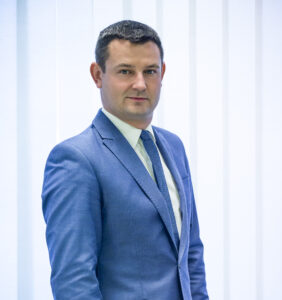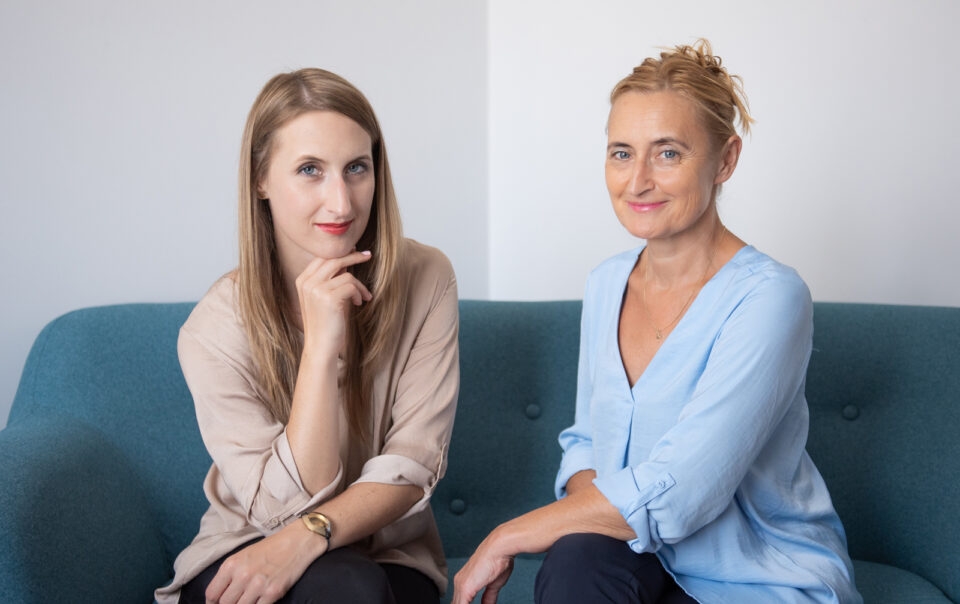
Many managers are asking what is the direct impact of using the Strengths Philosophy and talent management in the organization. How quickly we can measure whether the devoted time and energy can be translated into results and increased effectiveness of teams? This discussion is important, because managers usually want to quantify the Impact of “something” and see immediate results and proven repeatable metrics. Let’s discover below how practically a manager can successfully measure the effectiveness of strengths management implementation.
I have invited Jakub Lewandowski, Director of the Konin Region at Credit Agricole Poland to share his experience. Jakub has been managing a 80-person team including 13 managers for over 2 years. Thank you, Jakub, for accepting the invitation to talk to us about talents and your executive coaching and leadership development experience.
1. When for the first time you heard abut Gallup's philosophy to people management?
The first time I heard about Gallup’s talent based philosophy during the inaugural program (May 2019) for managers organised by Credit Agricole BP SA. The workshop was called “DISCOVER YOUR TALENTS AND BUILD STRENGTHS – MANAGING YOURSELF ON A GREEN PATH IN CREDIT AGRICOLE”. My inspiration to explore this philosophy came from the discovery that Strengths in management are seen as natural characteristics that each of us has. When we spend time on developing our talents we can achieve spectacular results in a relatively short time, using natural predispositions and gaining self-awareness. As a born optimist who implements positive psychology in management, I knew that this is the leadership direction for me and my team.
2. How long did you develop your talents on your own as a manager before you started implementing the philosophy for your team? What fascinated you the most about this process?
3. Were there any difficult moments on the path to transform talents into strengths?
I gained the biggest consciousness when working with the dark sides of my talents and understanding how I can be perceived through their lens. I have reconciled with the dark sides, I can manage them, often I still do not change anything, but I manage behavior consciously. I am an optimist and I know this makes me special. I really always believe that it will be good, that I will find a solution, and that difficulties will only make me stronger. For many people I can be perceived as naive, but I do not want to change it. I am attentive and can judge the intention, but I prefer to believe in people and be perceived as naive, rather than overly suspicious and thus lose strong bonds I can build with people. Overall, the whole process of turning talents into Strengths has greatly developed me as a human being and manager. Today I manage my Strengths and not only TOP 5, but thanks to you Agnieszka I made friends and I manage TOP 13 talents that I use in various projects. Of course, the talent number one Activator always helps me and determines my actions 🙂 I love this talent, because thanks to Activator I am always ready for challenges, but now I can manage them, because of the fact that I can be aware of its dynamic, I can manage it consciously, adopt appropriate communication and do analysis of possible scenarios
4. Can you say that the development of talents was a good investment in yourself??
It was a great investment that, in my opinion, will last a lifetime. Overall, the best investment is the investment in YOURSELF, and a talent development program allows you to broaden your perspective, understand others better, and enter a higher level of awareness and communication.
5. What are your greatest discoveries from this "journey in search of the Green Path"?
I discovered that every human being perceives us through certain perception filters. Even when communicating the same topic within a team, using the same words, you are perceived differently by different team members. Once I was convinced that by speaking transparently about my intentions I would allow a dozen or so members of the team to understand me identically. It turned out that by asking how did you understand me, several members of the team perceive me differently, not always seeing only good intentions. It all depends on the variety of perception filters they put on my statements. I realised that if my communication is to be precise and my requests are implemented, I should take care of relations with my entire team. Thanks to this, we will trust each other, assign good intentions and achieve success. Another discovery is the conscious use of talents in action. I use the Activator to start projects. In short, I inspire my great team and individual members to take responsibility for the project and get it started. I use the Organizer to delegate duties in accordance with the potential of my directors. I use Communication to show the fascinating side of the task and then turn it off, asking only questions that clarify or guide solutions. An optimist always believes in finding a solution, yet I no longer give ready solutions to my team, but now I also inspire them to find their optimal path to success. The Maximiser sets the bar high, thanks to which my team is constantly developing toward exceptional excellence and quality.
6. How did you integrated the talents into your team?
The next stage of working with talents in Credit Agricole was the implementation of talents among the directors of various bank branches. With the help of the Flashpoint Talent Institute and Credit Agricole internal trainers, we have implemented this knowledge throughout my team. At the beginning, we took care of curiosity, then we organised joint meetings to discussing the entire process with members of my team. Secondly, coaching sessions for senior leaders were organised, and a team leadership coaching workshop took place during November. After the workshop I was able to create a full Talent Map of my team.
7. From your observations, how the introduction of talent management influenced the team's efficiency?
Thanks to a better understanding between my team members, we are able to carry out tasks more efficiently and achieve better results. Confidence in the team and shared responsibility for the result have increased. We often talk about our talents, analysing how we behave in a given situation. I use the knowledge of TOP 5 of my managers to delegate better and assign the right people to the right tasks.
8. What is your team vision and how talent knowledge is helping you to achieve it every day?
My vision for the team remains unchanged after 2.5 years and I am implementing it very consistently. I focus on cooperation, support and trust in the team. I conducted dozens of team workshops, we established common principles and values for our team. Units did not want to adhere to team values and the talent program made me realise that in such situations it is also necessary to make decisions about personnel changes. People will not be forced to change, and some of them consciously break basic values, act against collectively established rules and leave a team that wants to play for one goal. I understood that the vision of an ideal team, which I have always believed in, is possible, I just need to be very consistent, transparent, focus on relationships, be careful and always respond adequately.
9. How did you measure team performance before applying the Strengths Philosophy, and how do you measure it now?
Previously, I measured effectiveness through the business performance of units, data of directors and their teams. Currently, I measure team effectiveness by observing the ability to motivate the entire team of directors and advisers to complete a task important for the given region. Individual goals were always implemented, it was more difficult to motivate to implement a task important for the region, and not having a direct impact on the individual result. Today I see that the common good, the regional project, inspires even greater motivation than individual success.
10. Do you see a change in your team's attitude after your own personal work that resulted in increase of self-awareness?
I feel like I have become a real leader thanks to personal work and team leadership coaching. I gained a lot of trust and faith in my good intentions, which was very important to me. My authority has been strengthened. From the very beginning, I was very transparent, and it always pays off. I support and develop by demanding from myself and my directors. Our joint arrangements are implemented, thanks to which I have a sense of influence and we achieve further successes. Thanks to my high self-awareness, I have become a leader who inspires people around to achieve great things.
11. With this experience, what would you answer to the other managers' question, "What is the direct impact of using the Strengths Philosophy, what are the greatest visible effects and after how long they are already visible?"
The personal effects can be noticed after 3 months, you can effectively observe the results in the team after 6 months, after about a year, you can fully consciously manage the team using the strengths-based philosophy and use the team’s talents in management. You will see the effects in better communication in the team, better understanding between team members and increased trust by understanding the intentions and diversity of team members. Thanks to the Strengths-based Philosophy, you can directly introduce the positive atmosphere in the team, which is built by understanding diversity, how to express and assign the right intentions to the behaviours and people.
12. What would you advise the managers who are at the beginning of the executive coaching path?
Trust, engage in 200%, observe and write down your observations, come back to your notes after a few months. I am sure you will be greatly surprised! Our reflections show what progress we have made. Through personal development and engagement into the process anyone can work on his, or her talents and transform them into strengths. The best investment is the investment in yourself, and Gallup is the best path to rise towards higher level of both: self-awareness and self-consciousness.
I wish you to support your people in the new managerial reality, to change the yellow and red paths into areas of passion and commitment. I believe that in the new reality it is passion and the ability to use the full potential that will create the success and commitment of high-performing teams.
Agnieszka Gut – Executive Coach and personal development coach was talking to Jakub Lewandowskim, Director of the Konin Region at Credit Agricole Bank.






